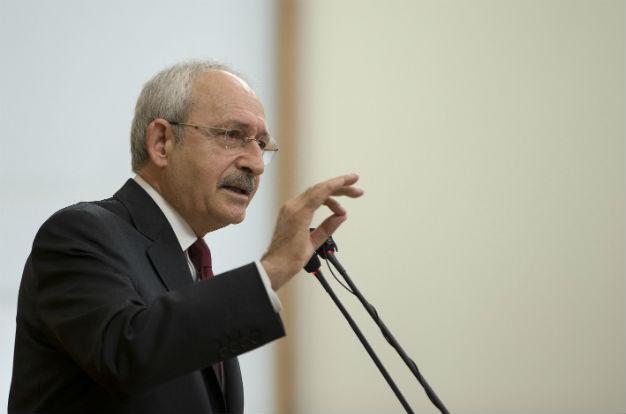Official figures show large increase in child sex abuse cases in Turkey
Oya Armutçu - ANKARA

AA photo
Figures by the Justice Ministry have displayed the plight surrounding child sex abuse cases in Turkey, which have recently come under the spotlight, with the main opposition party leader suggesting child sex abuse has increased almost 500 percent since the ruling Justice and Development Party (AKP) came to power in 2002.“What happened in 14 years? Violence against women increased by 1,400 percent,” main opposition Republican People’s Party (CHP) leader Kemal Kılıçdaroğlu said on March 29. “Drug [use] has become widespread. One of each five marriages ends with divorce. The rate of increase in sexual abuse of children is 434 percent,” Kılıçdaroğlu said.
“There is no other figure which would better explain the degeneration of society,” he added.
The issue of sexual abuse of minors recently came to the fore in Turkey after a 54-year-old teacher sexually assaulted a number of his male students at an apartment rented by the Karaman branch of the Ensar Foundation in Central Anatolia, where he had been teaching private courses.
According to 2014 figures from the General Directorate of Judicial Record and Statistics of the Justice Ministry, 18,104 cases on charges of child sex abuse were opened, with courts delivering 24,825 rulings in total in these cases. In 2014, 13,968 persons were convicted on charges of child sex abuse.
According to official figures, there was a gradual increase in these cases from 2002 to 2005. After the new Turkish Penal Code (TCK) went into force in 2005, there was a short-term decrease. Yet, from 2008 to 2012, a constant increase was seen in regards to cases opened on charges of child sex abuse.
In 2004, the number of cases was 4,032 and the number of convictions was 3,728. The number of cases opened in 2012 on these charges was 17,589.
In December 2015, the Constitutional Court annulled the second paragraph of Article 103 of the TCK which prescribes that in cases of sexual abuse by inserting an organ or instrument into a body, the offender is sentenced to imprisonment of no less than sixteen years.
“[…] Increasing the minimum limit of sanction from eight years to sixteen years contradicts the principles of justice and equity which are the sine qua none of a state of law and the principle of the proportionality of crime and punishment; that underage marriages are common in rural areas and sexual intercourse between underage children are widespread in urban areas; that the minor defendants are not aware of heavy sanctions imposed on sexual intercourse with underage children; that there are no activities aiming to increase such awareness; that the heavy sanctions imposed on the children injure the public conscience; that the previous version of the provision imposed no less than eight years of imprisonment if the victim’s spiritual health is not impaired but, according to the current version of the provision, the minimum limit of the sanction imposed on the same act is sixteen years regardless of whether the victim’s spiritual health is impaired or not; that imposing different penal sanctions on acts against the victims of proximate ages leads to indirect forms of inequality. Accordingly, the said provision of law was alleged to contradict Article 2 and 10 of the constitution,” said the top court at the time.
Consequently, the court annulled the said provision of law as it was found contrary to Article 2 of the constitution and decided that the annulment decision be effective one year after it was published in the Official Gazette.
















